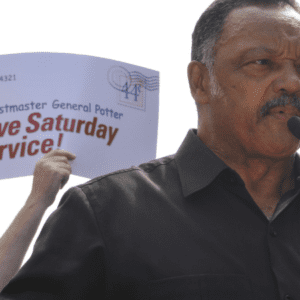March 1, 2017
New EEOC Disability Rules
(This article first appeared in the March-April 2017 issue of The American Postal Worker magazine.)
By Human Relations Director Sue Carney
The Rehabilitation Act is a federal civil rights law that prohibits federal agencies, including the United States Postal Service, from discriminating against job applicants and employees based on a disability or the perception of a disability. To strengthen the statute, the U.S. Equal Employment Opportunity Commission (EEOC) published new regulations this year to reaffirm the government’s commitment to otherwise serve as “model employers” for individuals with disabilities and explain what federal agencies must do to comply with affirmative action rules.
Section 501 of the Rehabilitation Act requires federal agencies create affirmative action plans for the employment of people with disabilities, and to submit those plans to EEOC for approval. The term “affirmative action” was previously not defined nor were detailed standards provided to determine whether an employer met its obligations. Before finalizing the new rules, the EEOC requested public input to clarify what an affirmative action plan must include and sought further public comment of its proposals.
The final regulations consolidate existing obligations from a variety of sources, which include current mandates for federal agencies to seek qualified job applicants with disabilities and to write reasonable accommodation procedures. Many skilled people with disabilities who desire work remain unemployed or underemployed, so new representation goals for employees within the federal workforce, at both higher and lower levels, were also set – 12 percent representation for individuals with disabilities and 2 percent for individuals with “targeted” disabilities. Targeted disabilities are those that pose the greatest barriers to employment, such as blindness, deafness, paralysis, convulsive disorders and mental illnesses, among others.
In addition, the new rules enhanced support requirements to enable more persons with disabilities to seek federal employment. These regulations require personal assistance services be provided to employees who need them to perform basic human activities at work, such as eating and using the restroom. The revisions will allow individuals with significant disabilities to enjoy the opportunity and independence of paid employment while potentially reducing the amount of taxpayer dollars spent on public disability benefits.
The changes provide concrete steps and accountability mechanisms that clarify and strengthen anti-discrimination laws. They create more meaningful employment opportunities for individuals with disabilities to thrive. We look forward to the USPS making appropriate accommodations to aid injured workers in performing their duties, and embrace the opportunity to welcome more disabled veterans and people with disabilities into our workforce.
To give agencies sufficient time to come into compliance, the rule changes will become effective on Jan. 3, 2018. In the interim, the USPS is not relieved of its current obligations. The EEOC plans to provide agencies with training and technical assistance to support their compliance efforts and published more information including a series of question-and-answers addressing the changes online at www.eeoc.gov.
Members can stay connected with the latest EEOC news by subscribing to their email updates through the EEOC website or by visiting http://bit.ly/2jFQhSn to enroll.
Human Relations Conference
Bally’s Atlantic City Hotel and Casino, Aug. 6-10, 2017. Featuring OWCP Federal Injury Compensation Specialist training, other HR issues and more. Appropriate for all representatives, beginner – advanced. Instructors include Sue Carney, APWU Human Relations Director, and Ed Duncan, former Deputy Director, OWCP.
Must book package through APWU. Deadline to register is June 1, 2017 (or when block is full). Space is limited so register early to avoid missing out. For more details or to register, visit apwu.org/events.



